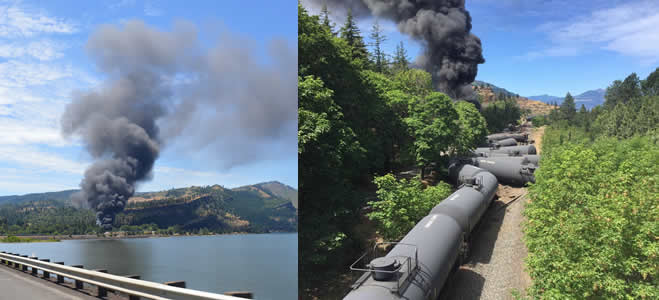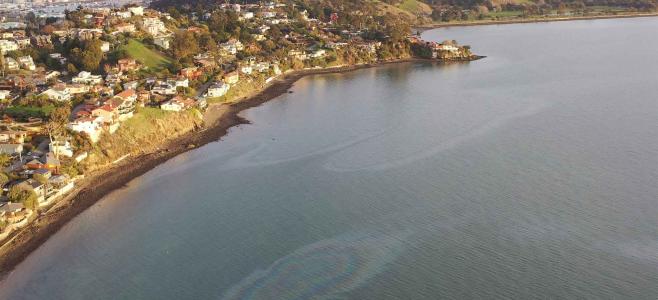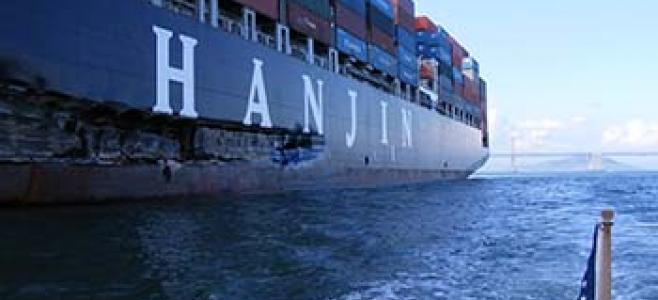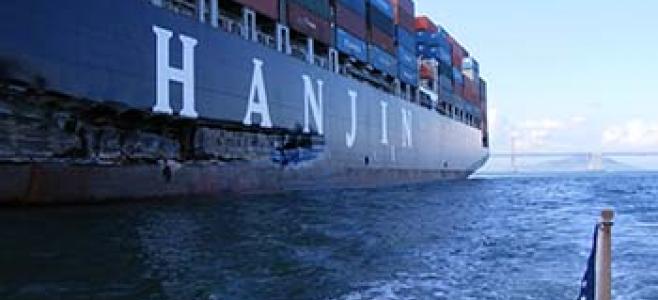
On June 3, a Union Pacific train with 96 tank cars full of crude oil derailed in Oregon along the Columbia River Gorge. Sixteen tank cars left the rails and four ruptured, spilling oil. A crude oil fire burned for 13 hours, and the accident damaged a sewage treatment plant, which had to be closed. An unknown amount of oil reached the river, possibly through a sewage pipe broken in the accident. An oil sheen on the water was visible from the air two days after the accident.
While the oil remained on the water, Union Pacific pushed aside the derailed cars, some still full of oil, and resumed running trains along the tracks.
Fearing an accident just like this, Baykeeper’s sister organization, Columbia Riverkeeper, has been on the frontlines for years to stop the transport of oil by rail along the Columbia River Gorge National Scenic Area. Columbia Riverkeeper is now calling for a complete cleanup of spilled oil and derailed train cars; a thorough investigation of what went wrong; and a federal ban on high-risk oil train shipments through the Columbia Gorge and other U.S. communities.
The oil spill in Oregon highlights the need to prevent an increase in the amount of crude oil transported by train on tracks that run near waterways and communities—including along the San Francisco Bay shoreline and through Bay Area neighborhoods.
Proposals for more oil shipment through the Bay Area, and shipment of oil along the Columbia River, are part of the oil industry’s efforts to use trains to move more crude oil across the US to West Coast ports for export. The shipment of crude oil by rail increased by 4,000% between 2008 and 2014, mostly from sources such as the Bakken oil shale in North Dakota and Alberta tar sands in Canada.
This rapid expansion of crude-by-rail has brought significant environmental and public health risks. Bakken shale oil is volatile and explosion-prone. Tar sands oil is dirty and difficult to clean up. Both types of oil are being shipped over deteriorating, unsafe railroad infrastructure and bridges. Often, the oil is shipped in tank cars not designed for explosive substances. The result has been an increase in accidents like the one that just happened along the Columbia River: derailments and harm to communities and waterways from oil spills, fires, and explosions.
Baykeeper is actively opposing the oil industry’s plan to turn the Bay Area into a hub for dirty crude oil export. West Coast Waterkeeper organizations are doing the same in their regions. We are all working to prevent the development of facilities that will allow the oil industry to bring in more crude oil by rail for export.
In the Bay Area, the oil industry’s plans for more oil shipping and export currently center on a proposal to expand the rail yard at the Valero refinery in Benicia. Along with other community and environmental groups, Baykeeper is advocating to block the Benicia Valero rail yard expansion plan. Last year, Baykeeper advocacy helped defeat a separate proposal to reopen an oil storage and transfer facility in Pittsburg that would have led to pollution in San Francisco Bay.
San Francisco Baykeeper stands with Columbia Riverkeeper in this time of ecological tragedy. We will keep working together to prevent oil spills in San Francisco Bay and throughout the region.
Photos Courtesy of Columbia Riverkeeper


